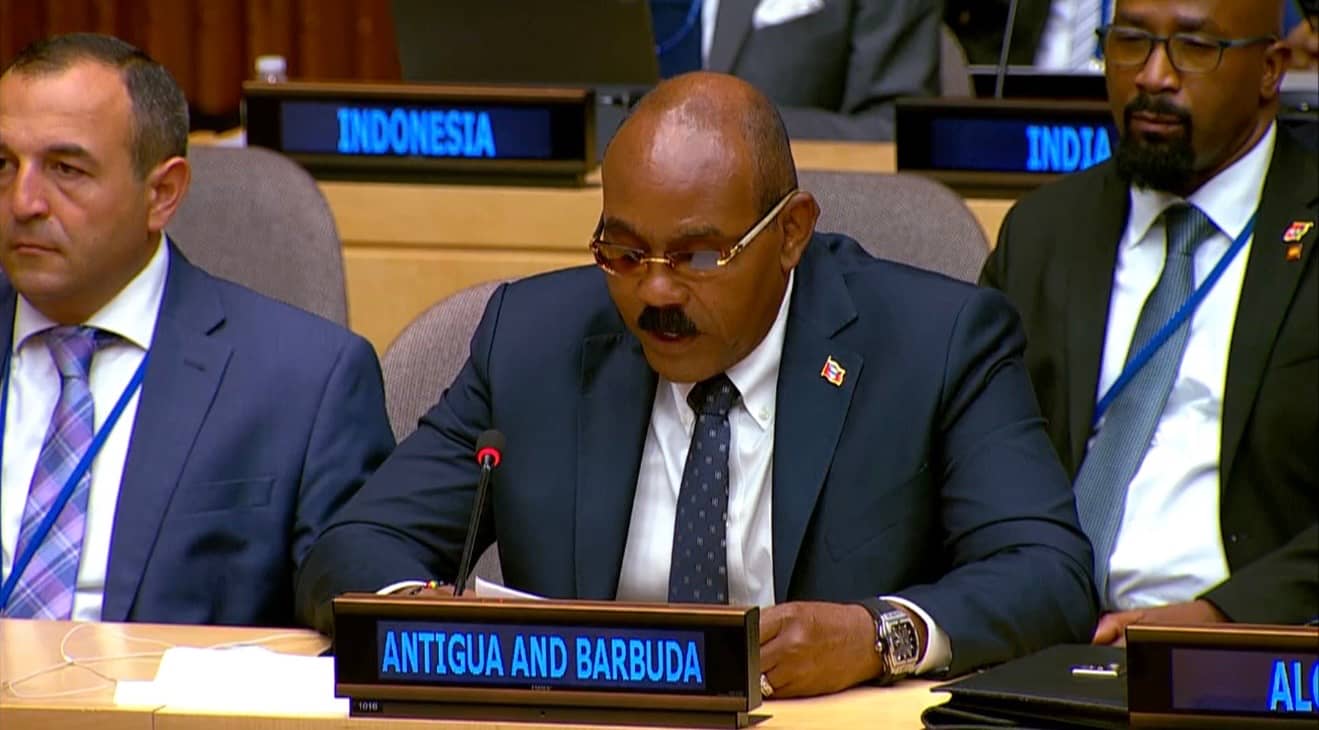At the First Biennial Summit for a Sustainable, Inclusive, and Resilient Global Economy held at the United Nations Headquarters in New York on September 25, 2025, Prime Minister Gaston Browne of Antigua and Barbuda delivered a compelling address. He urged the international community to transition from rhetoric to tangible action in delivering scaled, fair, and timely financial support, particularly for Small Island Developing States (SIDS).
Prime Minister Browne highlighted the stark realities faced by SIDS, emphasizing that global economic growth of 2.5–3% and a staggering public debt of US$97 trillion are insufficient to meet development and climate goals. He pointed out that trade fragmentation, financial volatility, and escalating climate disasters are undermining global confidence. For SIDS, the situation is dire: in 2024 alone, climate-related disasters caused an estimated US$7 billion in damages across small islands. With the IPCC predicting sea levels could rise up to one meter this century, and tourism accounting for over 40% of GDP in some islands, SIDS are three times more vulnerable to economic shocks than the global average. Many of these nations carry public debt equivalent to 80–100% of their GDP due to recovery costs and limited access to concessional finance.
Prime Minister Browne stressed, ‘We cannot keep mortgaging our children’s future merely to survive today. The vision is not missing; the problem is implementation.’ He outlined concrete steps under the Antigua and Barbuda Agenda for SIDS (ABAS), including the establishment of a Debt Sustainability Support Service (DSSS) to restructure debt and channel finance into resilience. The first DSSS transaction is expected to close by March 2026, and beginning in 2026, all new sovereign issuances by Antigua and Barbuda will include climate-resilient debt clauses.
To unlock finance at the necessary speed and scale, Prime Minister Browne called on international partners to expand concessional and grant finance through Multilateral Development Banks (MDBs) using vulnerability-based access criteria, adopt automatic disaster clauses to pause debt service immediately after catastrophes, standardize state-contingent instruments such as climate-resilient clauses and debt-for-nature swaps, blend finance at scale using guarantees and first-loss capital, and fund pipelines of ready country-owned programs in resilient infrastructure, clean energy, and adaptation.
Prime Minister Browne concluded by stating, ‘Let us measure success not by communiqués, but by classrooms rebuilt, clinics powered, homes protected, and by debt trajectories bent toward sustainability.’ Antigua and Barbuda has invited MDBs, International Financial Institutions (IFIs), philanthropy, and private capital to partner through blended-finance structures and guarantees, confirming that its pipeline of resilience, clean energy, and adaptation projects is ready for co-financing and rapid execution.
